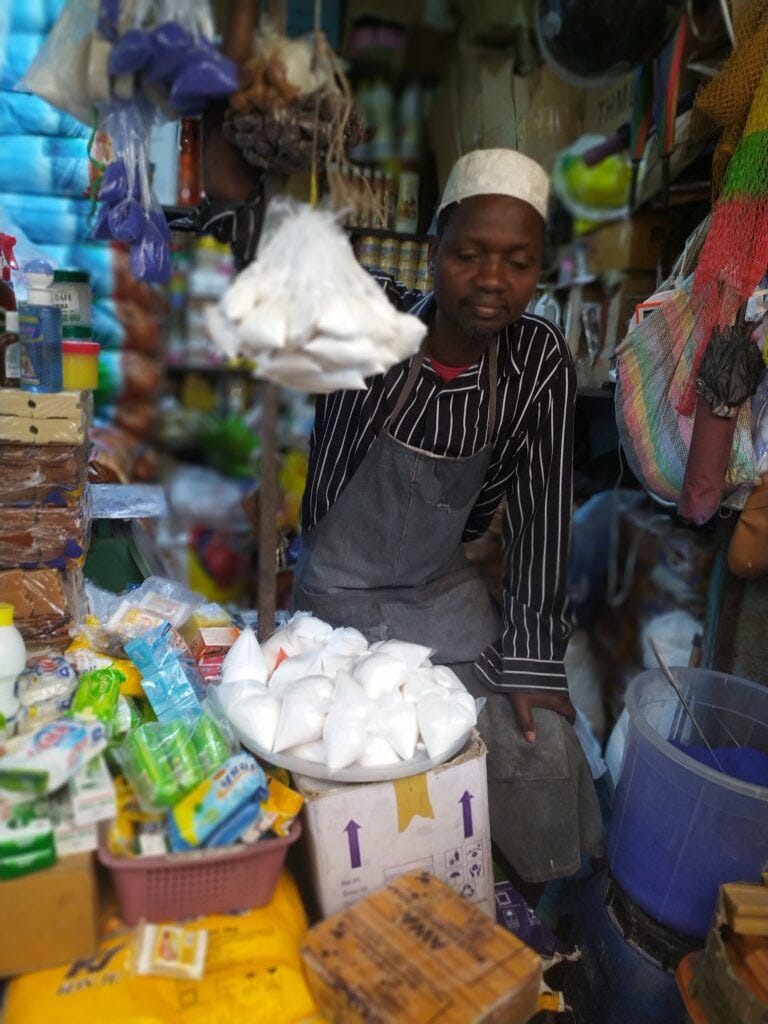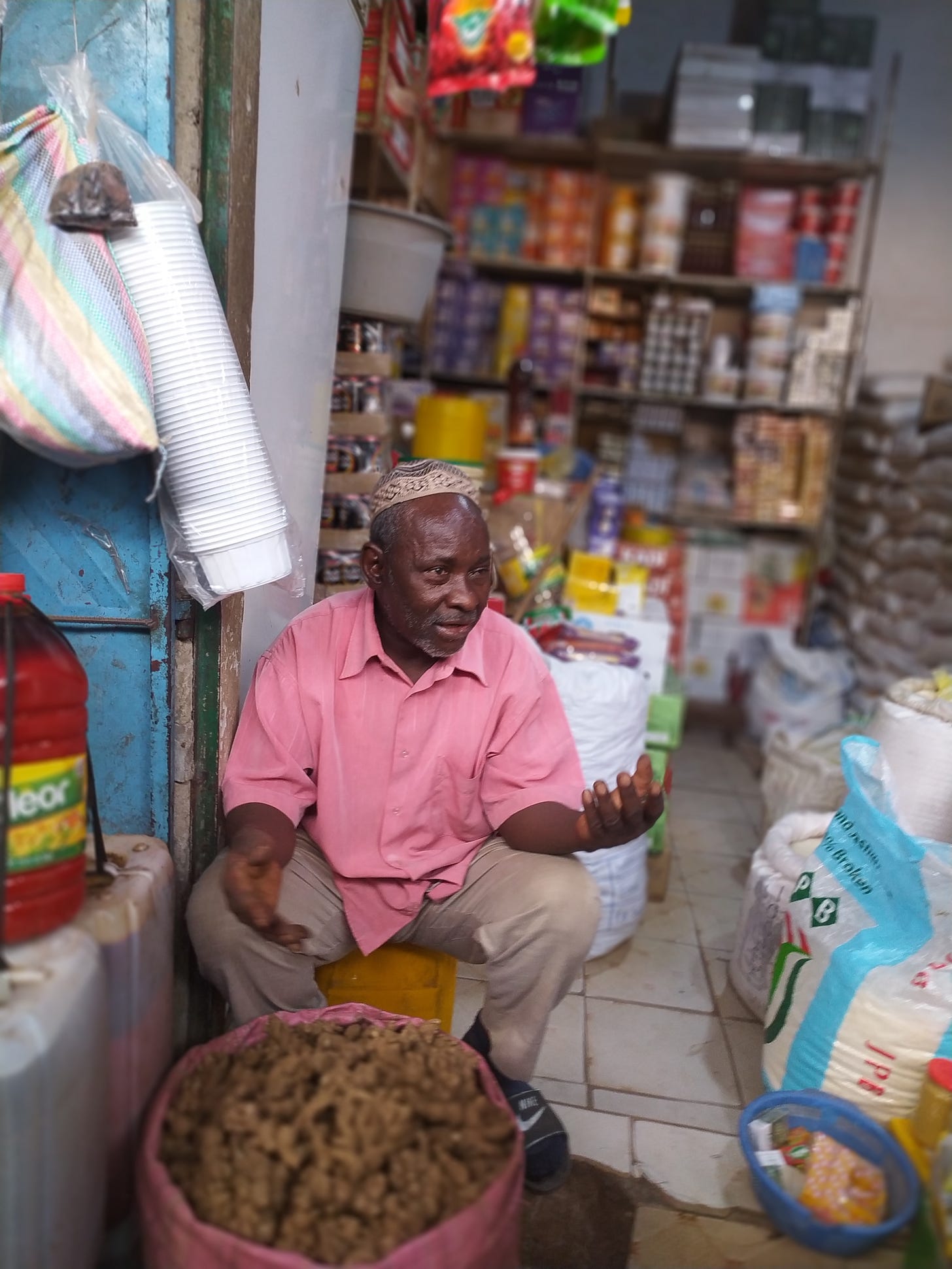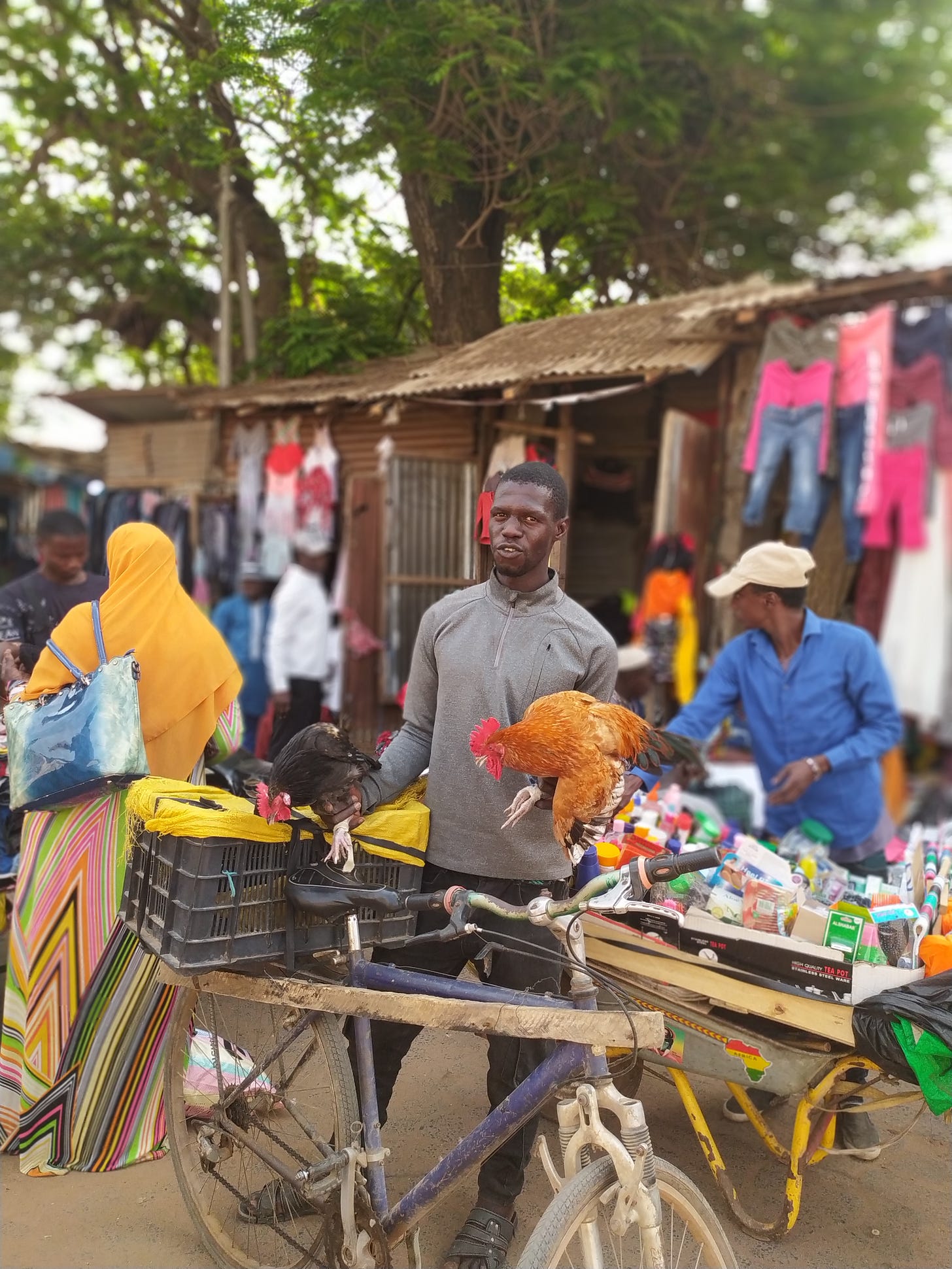Mathematics, African way
I pay for taxi 100 dalasi. I receive change: 140 dalasi.
Mathematics evolved directly from magic. In the ancient Israel, as well as ancient Greece of Pythagoras, the fundamental meaning of numbers is magical and symbolic. Here in Gambia, I feel it is still the case.
Walking across a village, I enter into conversation with three teenagers. The kids are talkative and intelligent. Binta is 12 and best in class in mathematics. Her friends Sam and Lamin are 15 and 17. Out of curiosity, I draw on the sand a rectangle, asking: what is the surface of a rice field, 3 by 3 meters? The kids are stunned: they have never seen a task like this. I simplify the question: how much is 2 x 2? And how about 3x3? All right, this works, the answers are correct. However, at 4x4 they begin to hesitate, and I realize the girl counts on her fingers. When it comes to 6x6, she abandons counting altogether and simply starts guessing, of course failing completely. Her older friends gave up long ago: Lamin's smartphone calculator comes to a rescue.
I gradually observe that even the more fundamental concepts such as "more" and "less" do not have European (Cartesian) meaning. I can support this with many examples. I buy water for 30 dalasi, and give 100 expecting the change. The shopkeeper reaches for a calculator to figure the result. She types in some numbers, the operation takes surprisingly long. She then hands me the change: 75. The calculator is a purely magical artifact. The connection between that object and the transaction result is ceremonial rather than logical (by "magical", I do not mean anything particularly African. I am convinced that masks worn during Covid-19 epidemic in Europe had a similar role)
I pay for taxi 100 dalasi. I receive change: 140 dalasi.
I buy pancakes. One pancake costs 5 dalasi. Six pancakes cost 35.
I check in a hotel. The room costs 3,000 per night and is ugly, it feels like prison. I ask the owner for replacement. No problem, I am quickly offered another room: beautiful, in tiny a garden house surrounded by vegetation. The price is 800.
In Lamin Kotu, a village of upper Gambia, I need to exchange money. The vendor, using a calculator, finds that 50 euro = 3550 dalasis. He then freezes and starts counting wooden beads of a rosary in his hand. The activity takes about two minutes. I am not sure if he is counting, or praying. I do not interrupt. Finally, his fingers meet the big bead, the man smiles and confirms it was a prayer to Allah. He then counts down 3,000 dalasis, he thinks for a second and adds 50. He then counts the money already in hand, hoping it is already 3550...
Unfortunately it is not, of course 500 is lacking. But his conclusion is apparently different. He adds 300. Then he counts again. To his surprise, he still does not have 3550 in hand. Something is still missing. He thinks again, and adds 150... the process repeats again and again. I leave the shop after fifteen minutes of counting, holding a stack of about 40 banknotes of all kinds of denominations, representing 3550 dalasis.
There is more to tell... mathematics, African way, is fascinating.
Below: random pictures taken at marketplace.





Have you come across any 1 butut coins yet? They used to be pretty rare.